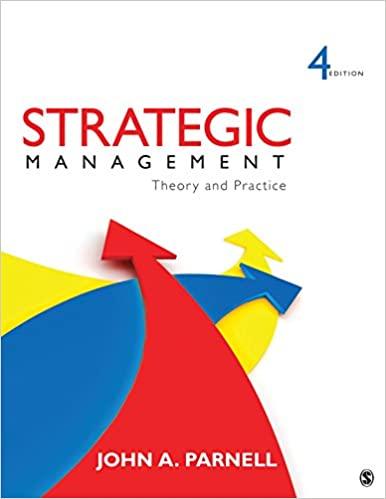Question
Shani, A., & Arad, B. (2014). Climate change and tourism: Time for environmental skepticism. Tourism Management, 44, 82-85. Hall, C. M., Amelung, B., Cohen, S.,
Shani, A., & Arad, B. (2014). Climate change and tourism: Time for environmental skepticism. Tourism Management, 44, 82-85. Hall, C. M., Amelung, B., Cohen, S., Eijgelaar, E., Gssling, S., Higham, J. ... & Weaver, D. (2015). No time for Smokescreen skepticism: A rejoinder to Shani and Arad. Tourism Management, 47, 341-347. Shani, A., & Arad, B. (2015). There is always time for rational skepticism: Reply to Hall et al. Tourism Management, 47, 348-351. Hall, C. M., Amelung, B., Cohen, S., Eijgelaar, E., Gssling, S., Higham, J. ... & Weaver, D. (2015). Denying bogus skepticism in climate change and tourism research. Tourism Management, 47, 352-356.
To take a contentious scientific and ideological issue in society (i.e. climate change) and to consider its potential effects on the global tourism industry. We also want to consider if academic scepticism around climate change is warranted and the consequences (positive or negative) of allowing scepticism
Questions for Discussion
- What are some of the ways that the tourism industry is said to influence and be influenced by changing climactic conditions?
- Have you seen any evidence of such influences in your own travels?
- Why do you feel (or indeed not feel) that we should be talking about climate beliefs in a subject like 21636 Developing Sustainable Destinations?
- Is climate change in your view an ideological issue, a scientific issue or both?
- What were some of the arguments made by Shani and Arad (2014, 2015) to advance their argument that perhaps the mainstream scientific community has gotten it wrong on climate change?
- Were you convinced by their arguments (why or why not)?
- What did you think of the proposition in Shani and Arad (2014, p. 84) that academics have a responsibility to be critical about debates that could lead to a "fundamental transformation of the tourism industry and tourists travel behaviour"?
- What were some of the arguments made by Hall et al. (2015) against Shani and Arad's arguments?
- - From what you've read in these papers do you think Hall et al. (2015) were right to argue that there are aspects of climate change debates that should be open to criticism and aspects that shouldn't be?
- - Would you support Hall et al.'s (2015) call for this whole exchange in the readings to be rescinded and stricken from the academic record?
- - Do you think that there is any place for "commentary or viewpoints" in discussions on climate change?
- With respect to sustainability Hall et al. (2015b, p. 354) make the following observation - "We envisage tourism's sustainable future whilst Shani and Arad present denial and a clarion call to follow the path of fossil fuelled growth. Sustainability is concerned with more than just wealthy is healthy". Do you think that this is getting to the heart of the sustainability debate, or are there aspects of the sustainability debate in Shani and Arad's contribution that it is missing?
Step by Step Solution
There are 3 Steps involved in it
Step: 1

Get Instant Access to Expert-Tailored Solutions
See step-by-step solutions with expert insights and AI powered tools for academic success
Step: 2

Step: 3

Ace Your Homework with AI
Get the answers you need in no time with our AI-driven, step-by-step assistance
Get Started


